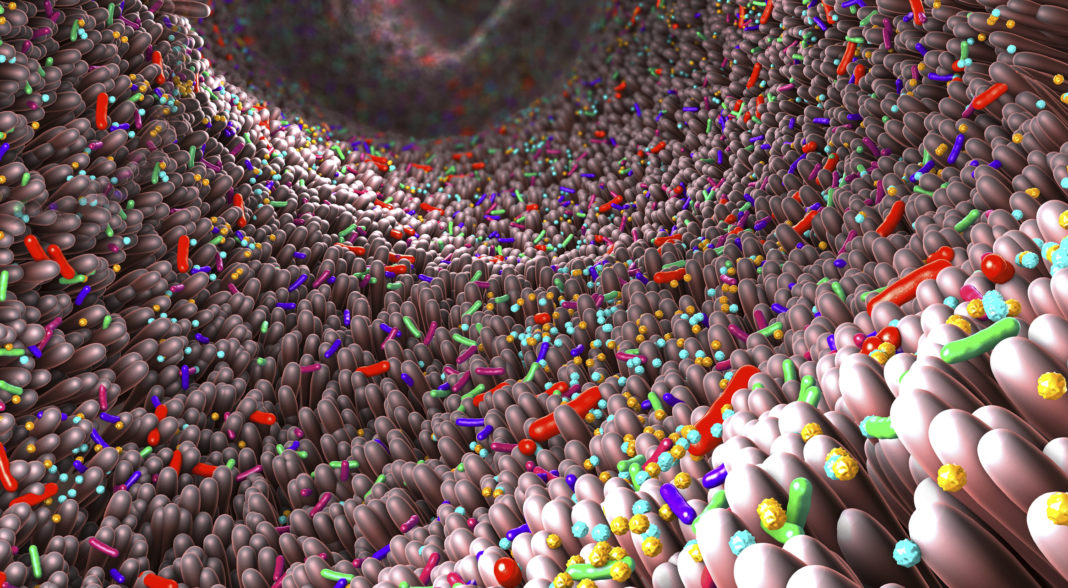While there is little doubt about the notion that we are a product of our genes, what is becoming increasingly clear is the mounting evidence that we are also a product of the bacteria that we harbor. These commensal organisms seemingly affect almost all aspects of our existence, and new studies continually show the importance of maintaining the appropriate balance among these microbial communities. One of the more exciting aspects of microbiome research is how gut microbes can have an impact on neurological events. One recent example is a study from investigators at the University of Missouri (MU) School of Medicine, and MU Health Care who found that obstructive sleep apnea (OSA) related sleep disturbances affect the gut microbiome in mice and how transplanting those gut bacteria into other mice can cause changes to sleep patterns in the recipient mice.
Findings from the new study were published recently in Experimental Neurology through an article titled “Fecal microbiota transplantation from mice exposed to chronic intermittent hypoxia elicits sleep disturbances in naïve mice.”
OSA is a chronic sleep condition affecting more than one billion people worldwide. Evidence suggests OSA can alter the gut microbiome (GM) and promote OSA-associated comorbidities, including diabetes, hypertension, and cognitive problems. In the current study, researchers show that the gut microbiome plays a significant role in sleep regulation—which could ultimately translate into treatments that target the gut microbiome in humans with OSA.
“By manipulating the gut microbiome, or the byproducts of the gut microbiota, we would be in a position to prevent or at least palliate some of the consequences of sleep apnea,” explained senior study investigator David Gozal, MD, an endowed chair of child health at the MU School of Medicine. “For example, if we combine continuous positive airway pressure (CPAP) with customized probiotics that change the patient’s gut microbiome, we might be able to eliminate some of the tiredness and fatigue and reduce the likelihood of the co-morbidities associated with OSA that affect cognition, memory, cardiovascular disease, or metabolic dysfunction. If we can do any one of those things, then this is a major move forward in the way we treat OSA.”
The study exposed male mice to either room air or intermittent hypoxia (IH)—a condition in which the body doesn’t get enough oxygen—designed to mimic OSA. After six weeks, researchers collected fecal material from all of the rodents. The third group of mice was divided up and given either a fecal transplant from the mice breathing room air or those exposed to intermittent hypoxia.
“We exposed C57Bl/6 J mice to IH or room air (RA) for six weeks, and fecal matter was collected and frozen,” the authors wrote. “C57Bl/6 J naïve mice were then randomly assigned to a fecal microbiota transfer (FMT) protocol for three weeks with either IH or RA fecal slur, and their gut microbiome (GM) was then analyzed using 16 s rRNA sequencing. In addition, FMT recipients underwent sleep recordings using piezoelectric approaches for three consecutive days. As anticipated, FMT-IH and FMT-RA mice showed different taxonomic profiles that corresponded to previous effects of IH on GM. Furthermore, FMT-IH mice exhibited increased sleep duration and the frequency of longer sleep bouts during the dark cycle, suggesting increased sleepiness (p < 0.0001 vs. FMT-RA mice).”
The transplanted mice underwent sleep recordings for three consecutive days. Researchers found the mice who received transplants from the intermittent hypoxia group slept longer and slept more often during their normal period of wakefulness, suggesting increased sleepiness.
“This is the first study that evaluated sleep in naïve mice subjected to a fecal microbiome transplant from mice exposed to intermittent hypoxia,” Gozal noted. “The fecal microbiome analysis showed profile differences between the mice transplanted from intermittent hypoxia donor mice versus those exposed to room air, indicating that the transplant altered the GM of the recipient mice.”
Emerging evidence suggests the GM can influence health and sleep quality through the brain-gut microbiome axis. The next step is to study the mechanism involved in the relationship between the brain and the gut to determine how changes in the gut microbiome can affect sleep structure and, in turn, how OSA can contribute to comorbidities.







